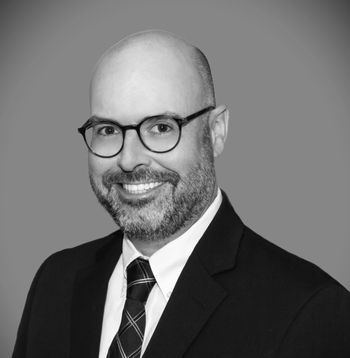PROF ELLWANGER: Special session of TX legislature must close SB-17’s DEI loopholes
State Bill 17, a new law that bans DEI initiatives in public colleges, was crafted in response to widespread evidence that DEI programming amounts to Leftist political indoctrination.
Adam Ellwanger is a professor of English at the University of Houston - Downtown. His primary areas of expertise are rhetoric and critical theory. He writes political and cultural commentary for outlets like Human Events, Quillette, American Greatness, The American Conservative, New Discourses, Minding the Campus, and many more.
This spring, Texas legislators passed State Bill 17 (SB-17), a new law that bans Diversity, Equity, and Inclusion (DEI) initiatives in public colleges and universities throughout the state. The bill was crafted in response to widespread evidence that DEI programming amounts to a kind of Leftist political indoctrination with emphasis on divisive theories of race, gender, and sexuality.
Set to go into effect in January 2024, SB 17 has been the subject of fierce debate in Texas. But ever since drafts of the legislation became public, many professors who are sympathetic to the aims of SB 17 (including myself) have warned that the bill is flawed – its text is often imprecise in defining what qualifies as a Diversity, Equity, and Inclusion initiative. Since college faculty, staff, and administrators are generally enthusiastic about the political purposes of DEI (and associated ideas like critical race theory and gender ideology), these ambiguities will likely be exploited as loopholes to circumvent the intention of the law.
Earlier this week, an article in The Texas Tribune showed how administrators in the Texas A&M university system are guiding faculty and staff in regard to complying with new legislation. Texas A&M’s internal guide for complying with SB 17 advises schools that “DEI information should not be on university websites, including but not limited to the acronym, DEI, or the phrase ‘diversity, equity, and inclusion.’” This language subtly hints that simply changing the names of offices that were formally tasked with DEI-related responsibilities might be enough to qualify as compliance with the law.
Recent internal communications at my university – the University of Houston – Downtown (UHD) – have provided further reason to believe that schools in Texas will not conform with the spirit of SB 17. One recent email explained that the new law “does not necessarily mean that we cannot continue to have the [DEI] programming or activities, but we may need to make some adjustments or changes in order to be in compliance.” Further, another email from the President’s Office indicates that (so far) efforts to comply with the law have been mostly confined to superficial name changes.
For example, the university announced that the former “Student Center for Diversity and Inclusion” has been “reimagine[d]” as the “Center for Student Advocacy and Belonging.” This new name should be a red flag to anyone familiar with left-wing ideology on campus. “Belonging” is a term commonly referenced in DEI materials – but its other positive connotations create a definitional ambiguity that allows DEI content to be smuggled in under a different name. Similarly, the phrase “student advocacy” calls to mind various forms of Left political activism that have animated American campus life since the 1960s.
The email explains that the Center for Student Advocacy and Belonging “will focus on fostering a community of care and connection for all [UHD students], including parents, under-represented groups, first-generation students, and low-income students.” In short, the center will apparently retain DEI’s concern with “marginalized” groups related to race, class, gender, and sexuality.
[RELATED: PROF ELLWANGER: New ‘victim studies’ is a fake discipline]
A visit to the new webpage of the Center affirms this mission, explaining that it will “empower students to build a more welcoming campus environment for […] the UHD community through programming and trainings, and by engaging in outreach and advocacy efforts to promote a campus of belonging.” In short, this sounds very much like the Center will continue with the work of DEI – despite the fact that SB-17 explicitly forbids “conducting trainings, programs or activities designed or implemented in reference to race, color, ethnicity, gender identity, or sexual orientation.”
It is important to state that the President’s email also stressed that UHD intends to achieve “full compliance” and that efforts to conform to expectations are ongoing. Nevertheless, the email neglected any reference to the university’s Center for Critical Race Studies or Center for Latino Studies, both of which would seem to be prima facie violations of the law.
UHD also sent faculty two internal documents from the school’s general counsel clarifying how the University of Houston System (comprised of four different campuses) will interpret the law. Perhaps not surprisingly, neither document included any guidance that would seem to require any modification of the Centers for Critical Race Studies or Latino Studies.
In short, there are major problems with SB-17 that will allow universities to easily circumvent the purpose of the bill. The fact that it tasks a university’s general counsel with defining what the law means invites administrators and lawyers to collude on an interpretation of the law that will require only the most minimal changes to the status quo. The ambiguous definitions in the bill also invite this subterfuge.
Fortunately, Texas Governor Greg Abbott has announced a Special Session for the state legislature in October of this year. That session could include an effort to revise SB-17 in ways that would make it harder for universities to circumvent its intentions. But in order to convince legislators to add this issue to the agenda, journalists, students, and sympathetic professors need to begin compiling and publicizing evidence that highlights the inadequacies of the bill as it currently exists.
If you have evidence of such malfeasance, please send a tip to Campus Reform.
Editorials and op-eds reflect the opinion of the authors and not necessarily that of Campus Reform or the Leadership Institute.

